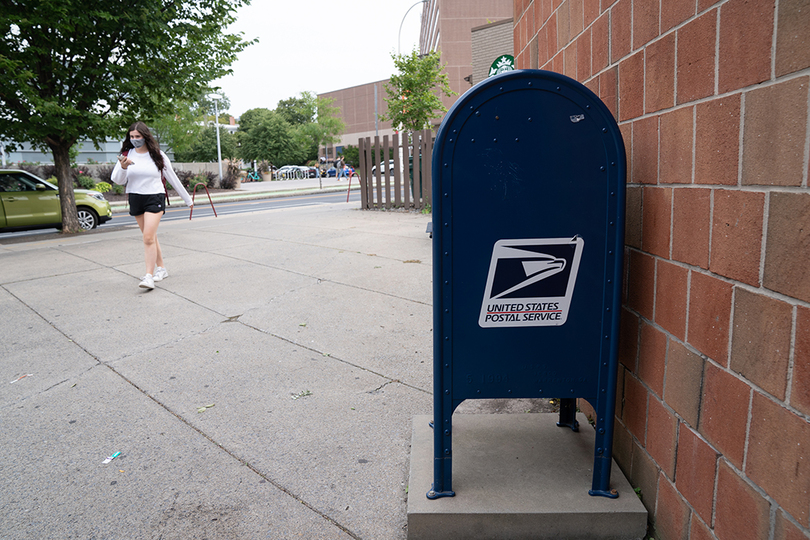Experts address student concerns on absentee voting during pandemic

Students who choose to vote for their home state can easily receive an absentee ballot. Emily Steinberger | Photo Editor
The Daily Orange is a nonprofit newsroom that receives no funding from Syracuse University. Consider donating today to support our mission.
Even as concerns mount about the U.S. Postal Service’s capacity to handle a surge in mail-in voting this election, Syracuse University students don’t have to worry about their absentee ballots being counted.
Experts told The Daily Orange that SU students have no reason to worry their votes won’t be received this November. Nonetheless, other coronavirus-related disruptions –– including university-mandated quarantines or classes going online midway through the semester –– could make it more difficult for students to vote.
Students’ right to vote by mail is well protected under federal and state law, said Dustin Czarny, Onondaga County Board of Elections commissioner. For any election, students have the option to vote absentee or register to vote in the state where they are attending school.
“It’s been pretty well-settled in the court,” Czarny said. “If you’re a student and you’re living nine months at a place, you can vote there.”
New York, along with other states, will allow voters to cite concerns about the coronavirus as a reason to request an absentee ballot this year. This has led to an anticipated surge in mail-in votes for the upcoming presidential election.
SU students studying out of their home state already have a viable reason to vote by mail and do not need to cite coronavirus-related concerns to qualify for an absentee ballot. Students who choose to vote in their home state can easily receive an absentee ballot, Czarny said.
President Donald Trump has incorrectly claimed that absentee ballot voting this election could lead to voter fraud. He has also opposed additional funding for the Postal Service to account for the swell in mail-in votes.
The president’s rhetoric surrounding mail-in voting shouldn’t discourage SU students from voting absentee, said Steven White, an assistant professor of political science at SU who specializes in U.S. politics. Any attempt to dismantle mail-in voting would require a collective effort from lawmakers at the federal, state and local level, he said.
Generally, members of both political parties like and trust the post office, White said, and the president’s efforts to undermine the postal service likely won’t be received well by the public.
“We’ve had mail-in voting in one form or another since the 50s,” Czarny said. “We’ve had large amounts of mail-in voting, and there’s no substantial fraud in it, no more than any other method of voting.”
The question this November will be whether the country has the infrastructure to handle the large volume of mail-in ballots, White said.
The postal service in Onondaga County is well equipped to handle the surge, Czarny said. Student voters should consider casting their ballots early due to other problems the pandemic poses, he said.
After SU after detected possible traces of COVID-19 in the wastewater of Ernie Davis Hall and quarantined the building, junior Madeline Canelli wondered what would happen if she were directed to quarantine before the election and had yet to cast her ballot.
The best solution for students worried about getting their absentee ballot in on time is to act early and secure their ballot as soon as possible, Czarny and White said. If SU moves classes online mid-semester and students have to return home before casting their ballot, it could make it more difficult for them to vote, White said.
SU could do more to help students vote in the upcoming election, said Isabella Wilson, an intern at New York Public Interest Research Group, a nonprofit student-directed education and research organization. The organization’s main initiative at the moment is getting students registered to vote, she said.
“Lots of (students from other states) are less informed when it comes to voting absentee,” said Wilson, a sophomore policy studies and political science major. “It should be something that all college campuses encourage and provide resources for.”
Wilson said the university should remind students to apply for an absentee ballot as the election draws closer. Canelli suggested that SU develop plans to collect mail-in ballots for students in quarantine.
“Students are a really important part of the population to vote,” Canelli said. “We’re the change that’s gonna happen.”





